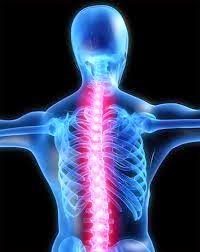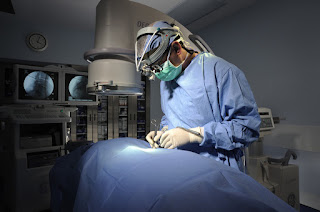Various types of injuries or accidents are also one of the key reasons for spinal conditions. Spinal health disorders can have a debilitating effect on our well-being by drastically limiting our mobility and our ability to carry out various routine tasks. A number of medical practices specialize in the treatment of spinal health conditions with each having its own unique benefits and applications.
Chiropractic
 Chiropractic is a medical practice that is concerned with the diagnosis as well as treatment of various mechanical disorders of the human body's musculoskeletal system. Spinal adjustment or "spinal manipulation" is one of the key areas of focus of chiropractic medicine as the nervous system is considered a vital component in chiropractic medicine and the spine is one of the key components of the human nervous system.
Chiropractic is a medical practice that is concerned with the diagnosis as well as treatment of various mechanical disorders of the human body's musculoskeletal system. Spinal adjustment or "spinal manipulation" is one of the key areas of focus of chiropractic medicine as the nervous system is considered a vital component in chiropractic medicine and the spine is one of the key components of the human nervous system.Chiropractic spinal adjustment offers effective treatment for a wide range of spinal system disorders with the effects of such treatment ranging from temporary pain relief to long-term wellness benefits as well as preventive care.
Chiropractic treatment of spinal conditions involves spinal adjustment through the application of pressure by hand on the patient's back/spine by a trained chiropractor. This minimizes the risk of side-effects and complications usually associated with complex surgical procedures and makes chiropractic care a good choice for various types of mild spinal health conditions. Some of the spinal health conditions for which chiropractic care is uniquely suitable include mild scoliosis, lower back pain, neck pain etc.
Orthopedics & Spine Surgery
Orthopedic surgeons specialize in the diagnosis as well as treatment of health conditions involving the bones and joints. Treatment of a wide range of spinal conditions is also one of the key components of the training of orthopedic spine surgeons and many orthopedic surgeons also specifically specialize in the treatment of spinal disorders.Though, many of the spinal conditions treated by orthopedic spinal surgery overlap with those treated by neurosurgery, orthopedic surgeons are uniquely suited for treatment of spinal health conditions that involve specialized knowledge of spinal bones and joints. Some of such conditions include the treatment of severe spinal deformities (such as kyphosis and scoliosis) and treatment of spinal bone tumors.
Neurosurgery
Neurosurgery involves diagnosis and treatment of various disorders of the nervous system, which consists of the brain, the spinal cord and the peripheral nerves. When it comes to treatment of spinal health conditions, neurosurgeons generally specialize in the performing procedures inside the lining of the spinal canal or the dura (intradural procedures).Many of the common spinal disorders such as disc herniations, spondylolisthesis, disc degeneration, spinal stenosis are nowadays being treated by both neurosurgeons and orthopedic surgeons. However, neurosurgeons are more uniquely suited for treatment of certain spinal conditions that involve the spinal cord (intradural conditions). Some of such conditions include spinal cord tumors, syringomyelia, Chiari malformation, spina bifida, tethered spinal cord etc.


